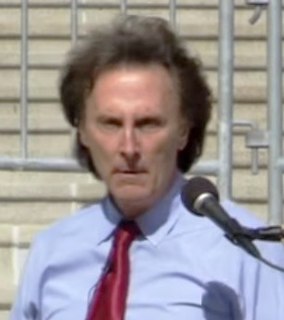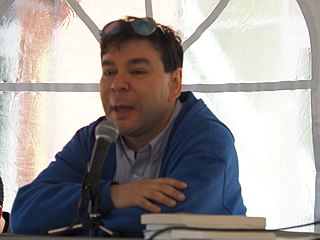A Quote by Siddhartha Mukherjee
I think the way we think about cancer, the way we treat cancer, has dramatically changed in the last century. There is an enormous amount of options that a physician can provide today, right down from curing patients, treating patients or providing patients with psychic solace or pain relief.
Related Quotes
Treating only terminal cancer patients, the Rand (anti-cancer) vaccine produced objective improvement in 35% of 600 patients while another 30% demonstrated subjective improvement. FDA stopped the vaccine's use in a federal court hearing where neither the cancer patients nor their doctors were allowed to testify.
I am a spiritual person. I'm a Catholic. I treat my patients, the dead patients, as live patients. I believe there is life after death. And I talk to my patients. I talk to them, not loudly but quietly in my heart when I look at them. Before I do an autopsy, I must have a visual contact with the face.
You know, cancer is bipartisan. I mean, there are so many people whose lives are touched and changed by cancer that people are willing to work together to find cures, find solutions, make lives better for cancer patients. So I think people put politics aside. This isn't a political thing. This is a life issue.
We went through the records and we found over five hundred of his patients who were alive and well five years after their treatment, with no cancer. And Dr. Burton didn't selectively give us these. These were "take what you want. Here are the patients I treated." So there was statistical improvement - more so than any cancer institution in the United States could show.
I look upon cancer in the same way that I look upon heart disease, arthritis, high blood pressure, or even obesity, for that matter, in that by dramatically strengthening the body's immune system through diet, nutritional supplements, and exercise, the body can rid itself of the cancer, just as it does in other degenerative diseases. Consequently, I wouldn't have chemotherapy and radiation because I'm not interested in therapies that cripple the immune system, and, in my opinion, virtually ensure failure for the majority of cancer patients.
Money spent on vegetative patients is money not spent on preventive care, such as flu shots and mammograms. Each night in an ICU bed for such patients is a night that another patient with a genuine prognosis for recovery is denied such high-end care. Every dollar exhausted on patients who will never wake up again is a dollar not devoted to finding a cure for cancer.



































